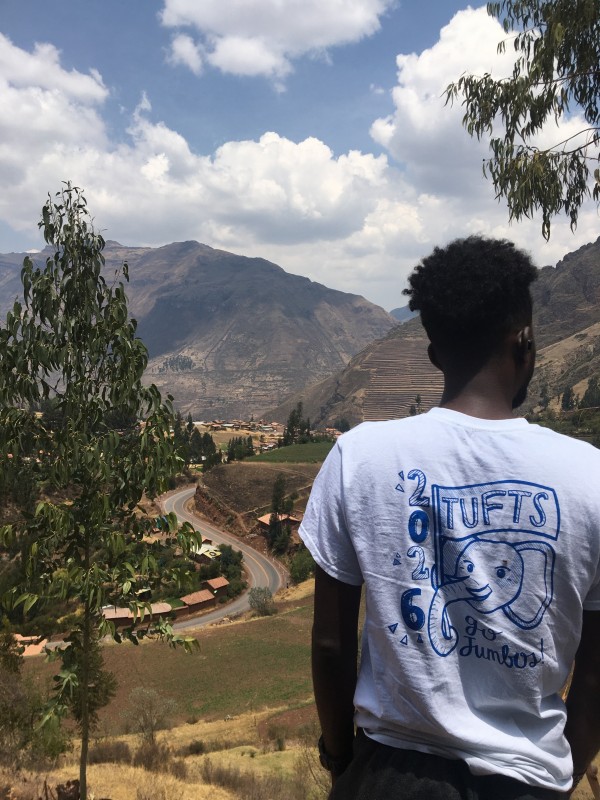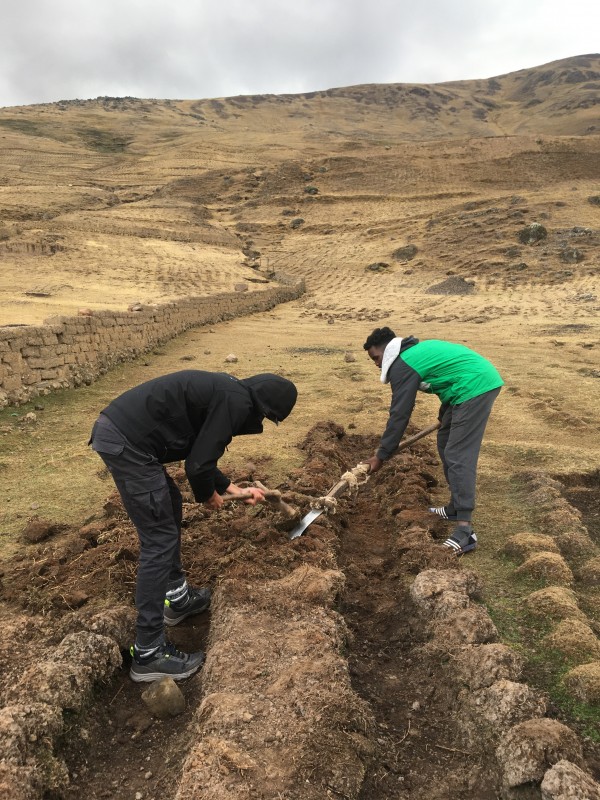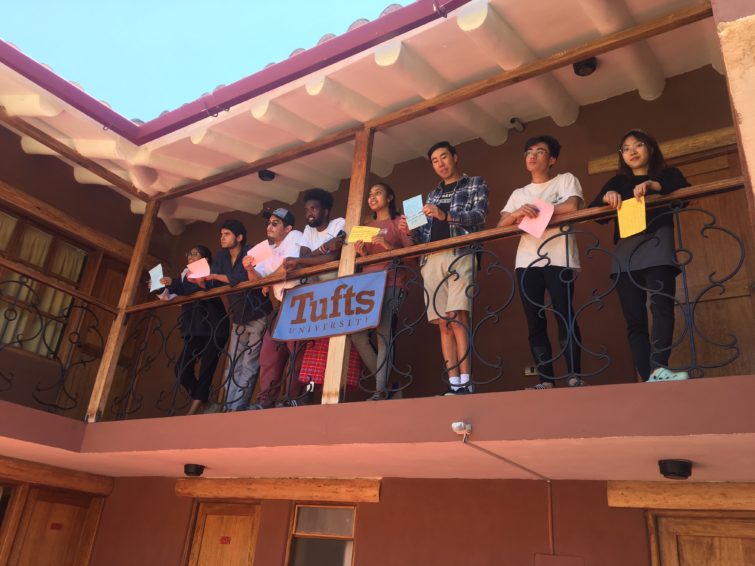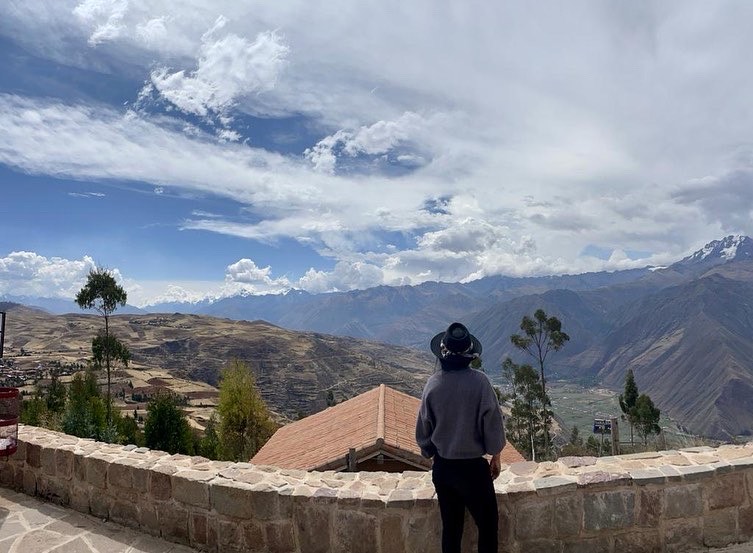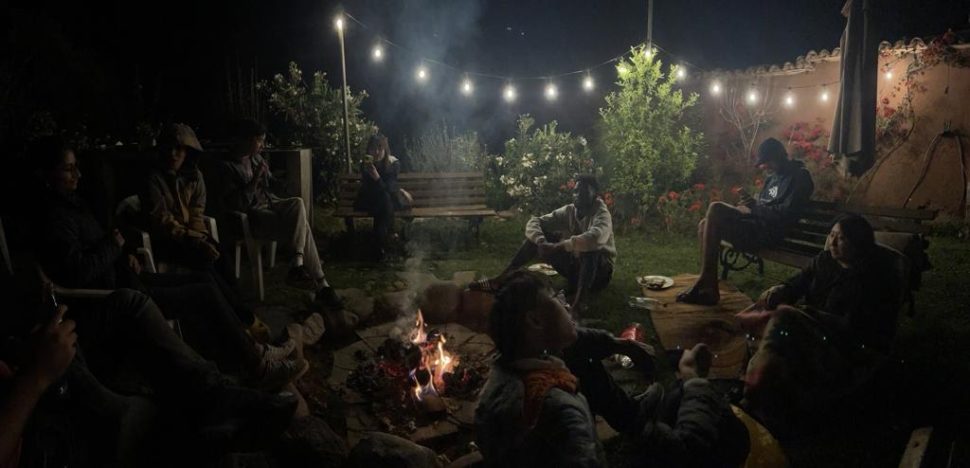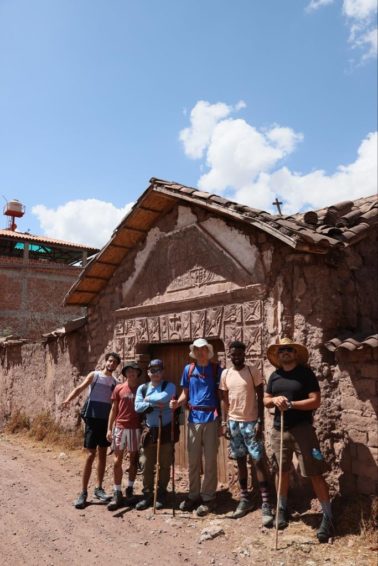by Jordan, Civic Semester Participant
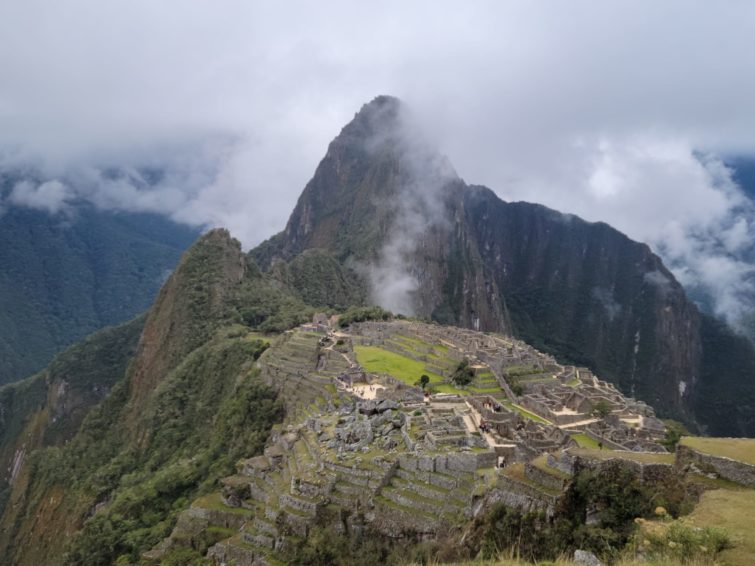
I’ve thought a lot about our trip to Machu Picchu. It truly was an amazing experience, something I am very grateful for. To be honest, I never would have seen myself in Perú in the future. And well, now I’m here.
First, some background. The name Machu Picchu actually has a meaning in the Quechua language. Quechua was the language of the Incas. In Quecha, “Picchu” means “montaña,” or in English, that would be mountain. “Machu” means “viejo” or old in English. Therefore, Machu Picchu means old mountain. The neighboring mountain, Huayna Picchu, means young mountain.
While I’m not actively learning Quechua, learning the significance of words is interesting. You hear it a lot down here. Our tour guide gave me a lot of new words to share. One thing I’ve always done while in Perú is writing down everything I learn everywhere we go to. Unfortunately, my water bottle exploded in my bag earlier in the day, and so that wasn’t a possibility. However, I was still able to thoroughly enjoy my time at Machu Picchu. It truly is magical. The misty fog surrounding the nearby mountains and sun, the grey stone ruins sitting between a ring of mountains. The Sun Gate, waiting for December 21 when the summer solstice arrives, and the sun comes perfectly in line. All of Machu Picchu shows the intentionality of the Incas. Not only with the Sun Gate. They carved rocks shaped like Condors. There are recreations of mountain landscapes. They even predicted natural disasters and built accordingly. All in all, it was quite the site to take in. Now it is a major tourist attraction. Surprisingly, this was my first time paying for the bathroom. Quite the shock! Furthermore, Machu Picchu is rapidly sinking due to all of the tourism, so I’m not sure how long it will be open to the public. And it is already much more limited than in the past. However, while there, I tried not to think about these things. It really was a “live in the moment” experience. From the surrounding clouds, breathing in the moist air, enjoying the view, and learning about Incan life in Machu Picchu, it really was a transformative experience that allowed me to imagine what it was like. As if it came alive again.
This is a memory I will never forget. I can’t wait to thank my parents when I go back home with a big hug, thanking them for all they have done for me growing up (Hi mom! I know you’re reading this!) I’m so happy and proud to be here today. In fact, I’ve fallen in love with Perú. I hope to come back and explore more that this beautiful country has to offer. Or maybe Perú is just the starting point. Maybe now I explore the rest of South America. Who knows. I have the rest of my life ahead of me.



